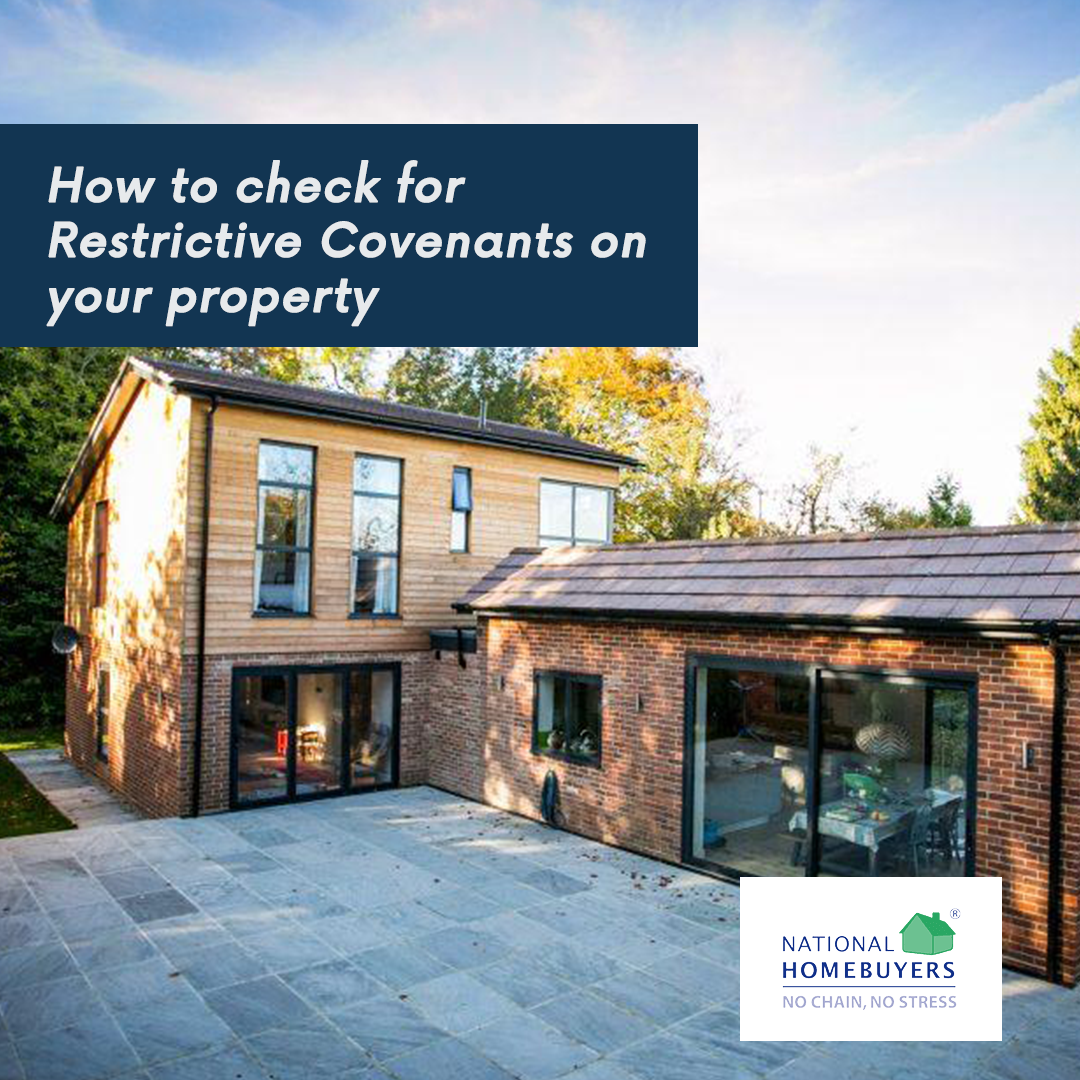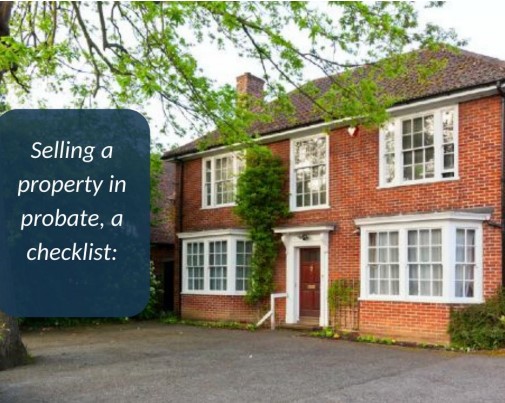How to check for Restrictive Covenants on your property
Whether you own a property or are thinking about buying a new home, it’s important to know if you’ll face any rules or restrictions when it comes to alterations, usage, or even having pets or a washing line. And while some obligations might not impact you or prove more than a minor inconvenience, others can be hugely expensive. So, it’s important to know how to check for Restrictive Covenants on your property.
What is a Restrictive Covenant?
A Restrictive Covenant is a rule or condition written into title deeds or contracts by the seller of land or property. This could be anything from preventing a homeowner from putting up a satellite dish to the front of the house, to potentially expensive obligations like Chancel Repair Liability, which can cost tens of thousands of pounds.
Typically, they’ll cover alterations, adding more building or structures, or prevent businesses or trades from operating. Housing developers and property management companies will add them to try and strop anything negatively impacting on a neighbourhood, removing uniformity or adding to maintenance, while landowners may want to retain a degree of control or minimise future damage.
Most importantly, a Restrictive Covenant will ‘run with the land’, and apply to all future owners unless it’s possible to have them challenged legally, or voluntarily removed.
How to check for Restrictive Covenants on your property
During the purchase process, your solicitor should make you aware of any Restrictive Covenants which apply to a property. But if you want to look yourself, or you’re an existing home owner, then you can start by visiting HM Land Registry and creating an account to access the data held by them.
This will show the restrictive covenants on registered land and property in England and Wales, although it won’t give details about what the rule might actually involve. You may find more information in other documents they hold, such as the title plan.
As a homeowner, you may hold the Title Deeds to your property, in which case you’re able to look through them yourself or have them checked by a lawyer. But this isn’t always the case, as your mortgage company may be holding them, and might be unwilling to release the deeds to you as they form security for the debt.
Currently around 15% of all land in England and Wales is still unregistered. While it’s now compulsory to register when a sale takes place, property owned by the Crown, aristocracy or the Church might not have changed hands for hundreds of years. Which means you’d need to be particularly careful if the opportunity to purchase did crop up.
Personal Covenants and Easemants
A Personal Covenant does not run with the land, and will usually refer to an action that the buyer has agreed to as part of the sale of the property. So, they’ll only be enforceable against the person making that covenant agreement.
Easements are private agreements that may grant access to property belonging to someone else. Common examples include allowing underground services such as water and drainage to pass under other homes, or a shared right of way for access to properties.
These both differ from Restrictive Covenants, but are no less important when you’re considering buying a property.
How can Restrictive Covenants impact homeowners?
In most, but not all cases, a Restrictive Covenant should be listed in the Title Deeds, and will have been noted and explained by your Solicitor during the purchase process. So, you’ll be aware of the potential limits on what you’re able to do, or your possible obligations.
An older period property may feature a Restrictive Covenant to stop you radically changing and modernising features, which isn’t a big problem if you bought the house for the historic character and design. And the limits on new housing developments could also stop your neighbours from making changes which could impact the value of your home.
If you breach a Restrictive Covenant, whether you know about it or not, then you may have to undo any offending work (for example, remove an extension), pay a fee which can cost thousands of pounds, or you could face legal action.
Your solicitor is responsible for highlighting any covenants, so if they did miss something, you’re able to complain to the Legal Ombudsman. However, the maximum amount of compensation that they can award is limited to £50,000, so this might not cover the cost of removing any work, or your fees or legal costs for breaching the rule in question.
Can Restrictive Covenants be challenged or removed?
It’s possible to have the rules or regulations removed voluntarily or via a legal challenge, and it’s less risky to try and get this done before you purchase a property.
If you know a rule is in place, you will need to find out who holds the ‘benefit of the covenant’, which may the be the current owner, another individual, or a private company, as they’re responsible for enforcement. You could then negotiate to have the covenant removed as a condition of sale.
In some cases, very old covenants could be considered unenforceable, as the original landowner or builder can’t be traced, the wording is too ambiguous and difficult to apply, or it has become historically obsolete. With new builds, you may be able to pay a fee and get consent, and this has also been an option for some older rules and regulations (for example, some diocese have offered to remove the obligation for Chancel Repair Liability from homeowners for a small fee).
When you’ve attempted to negotiate with the person who has benefit of the covenant, and they’ve refused permission or asked for an unreasonable amount, it’s possible to challenge the rule by applying to the Lands Camber of the Upper Tribunal to modify or discharge restrictive covenants.
As with any legal action, this can be risky, time-consuming and expensive. If you’re successful, your legal costs will not be covered, but if the judgement is in favour of the beneficiaries of the covenant, you may be forced to pay their legal fees.
What if you’ve breached a Restrictive Covenant and want to sell?
With any legal matters, it’s vital to seek qualified and expert advice as soon as possible. Your solicitor or conveyancer will be able to check that the covenant is recorded correctly, and whether the wording has been drawn up correctly and in a way that is enforceable.
If you have breached a covenant for more than 12 months without challenge, and then decide to sell the property, you could take our Restrictive Covenant Indemnity Insurance, which lasts in perpetuity and can usually be passed on to future owners.
You’re not able to purchase Restrictive Covenant Indemnity insurance directly from a provider, so it needs to be obtained via your solicitor. The cost will depend on how many covenants have been breached, the risk and cost of them becoming enforced, and the value of the property. But the one-off premium will usually be around £150-500.
If you’re unable to get insurance cover, or want to take the risk, you could approach the beneficiary of the covenant to apply for ‘retrospective consent’, but this obviously carries the chance they may seek to enforce the rule instead.
As experienced homebuyers with decades of experience, if you’re struggling to sell your home due to a restrictive covenant (whether you’ve breached it or not), then we can provide a competitive valuation and cash offer for your property.






